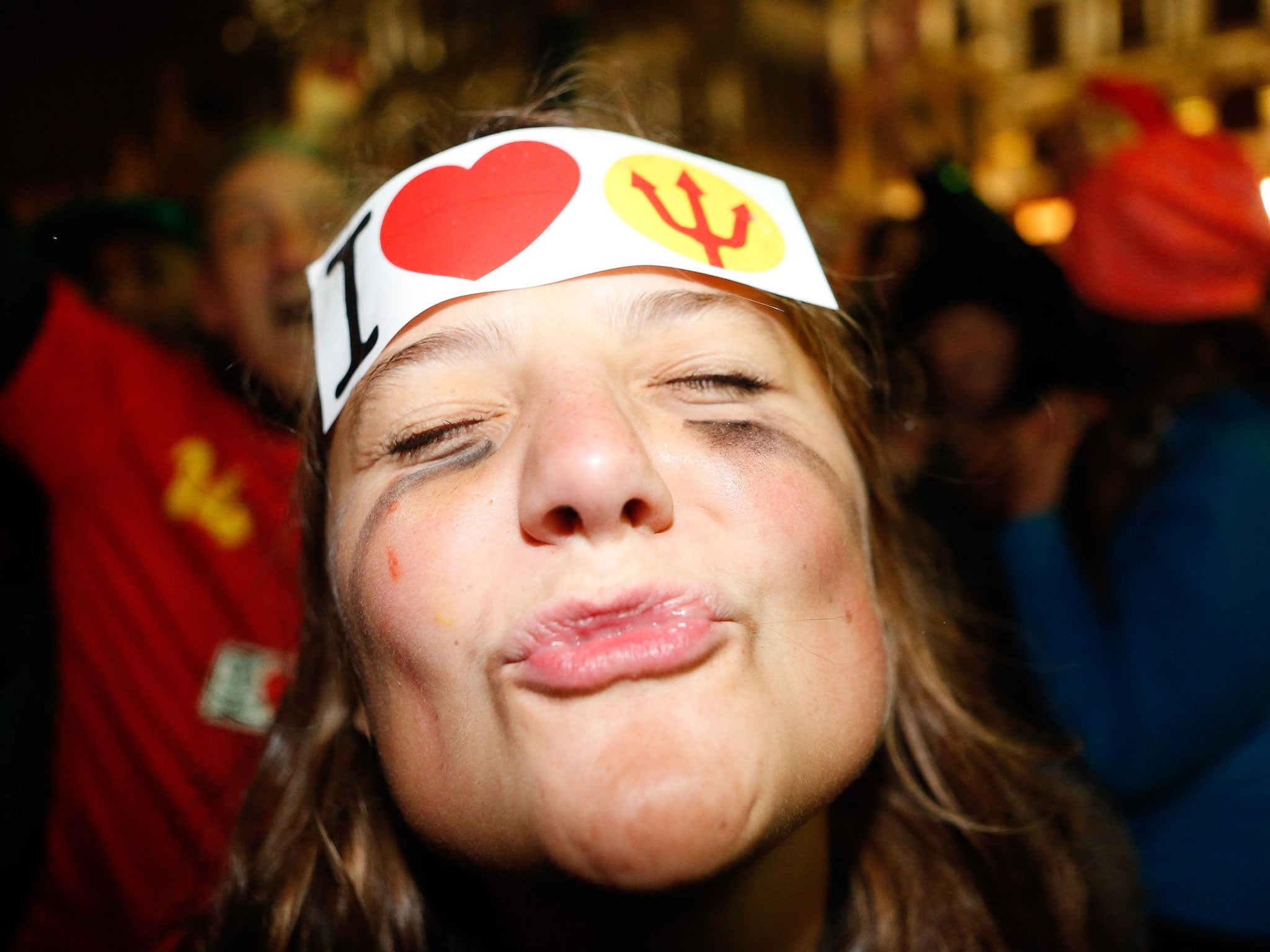Postcard from... Brussels

The crowds packed the Grand Place in Brussels until the early hours of Saturday morning, cheering on their “Red Devils” who had beaten Croatia 2-1 to secure Belgium’s place in next summer’s World Cup. Many beaming faces were painted black, yellow and red, the colours of the Belgian flag, which supporters waved euphorically.
But one person who might not have found his mood lifted was Jan Peumans, president of the regional parliament in Flanders, the Dutch-speaking north of Belgium where a significant number of its 6.5 million residents support a split with southern French-speaking Wallonia.
As Red Devil fever gripped the country and chatter began last month of a new national unity dubbed “Belgitude”, Mr Peumans sniffily told the weekly P-Magazine that you would not see him draping himself in a Belgian flag or donning a tricolour wig.
“I do not care for the Belgian flag, it does not matter to me,” he said, adding for good measure that “this ‘Belgitude’ is outright laughable”.
An upsurge in nationalistic sentiment is not exactly what his party, the New Flemish Alliance (N-VA), needs ahead of May elections. A poll in spring predicted that the separatist outfit could get a record 32.1 per cent of the vote, making it the biggest party in Belgium and possibly putting it in a position to start the process of slow devolution which it advocates.
A new poll at the weekend, however, showed its support had slipped to 27.9 per cent. The pollsters did not attribute that fall specifically to the rise of the Red Devils, but many Flemish nationalists are tiptoeing around the subject.
Join our commenting forum
Join thought-provoking conversations, follow other Independent readers and see their replies
Comments
Bookmark popover
Removed from bookmarks